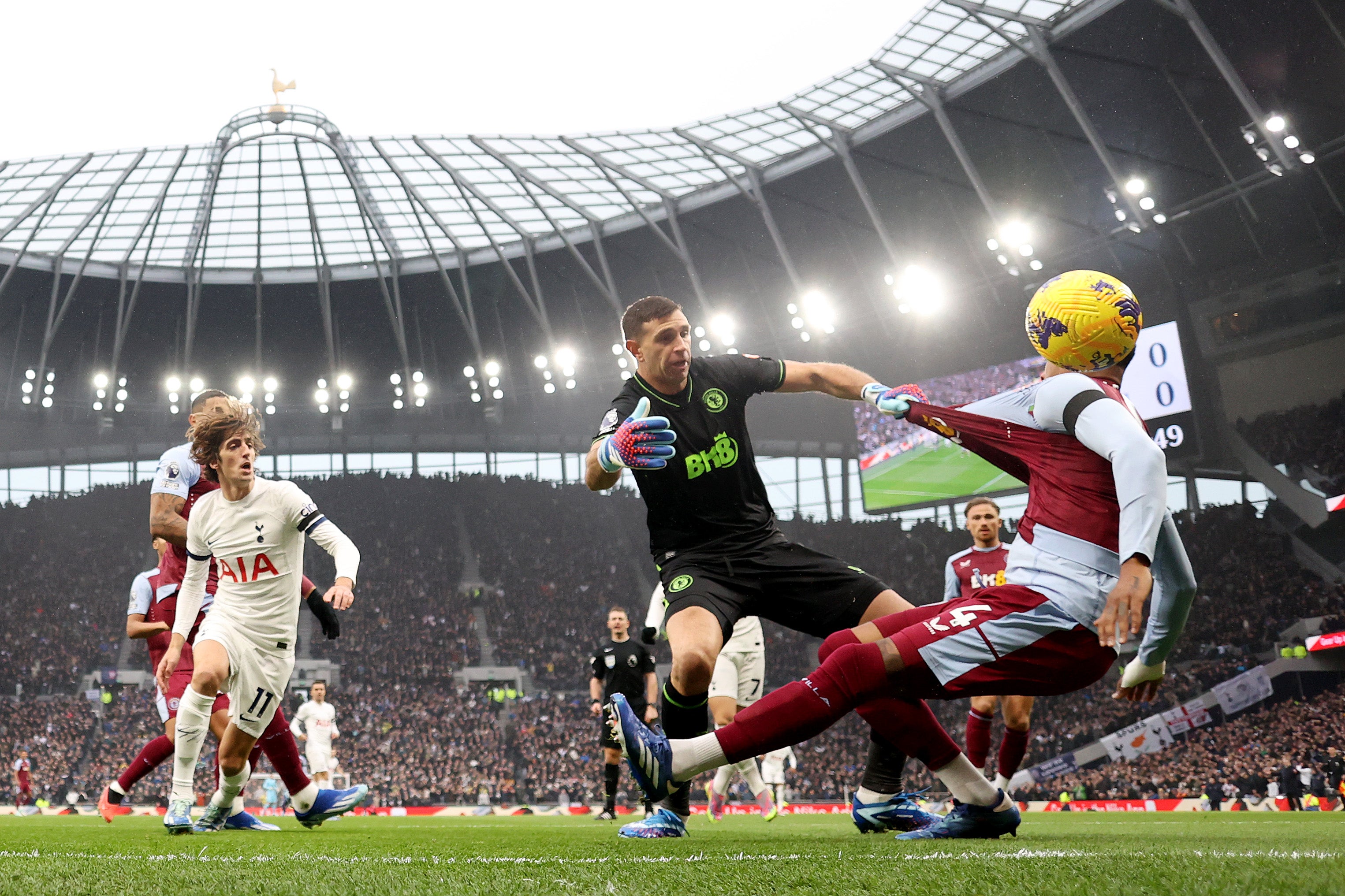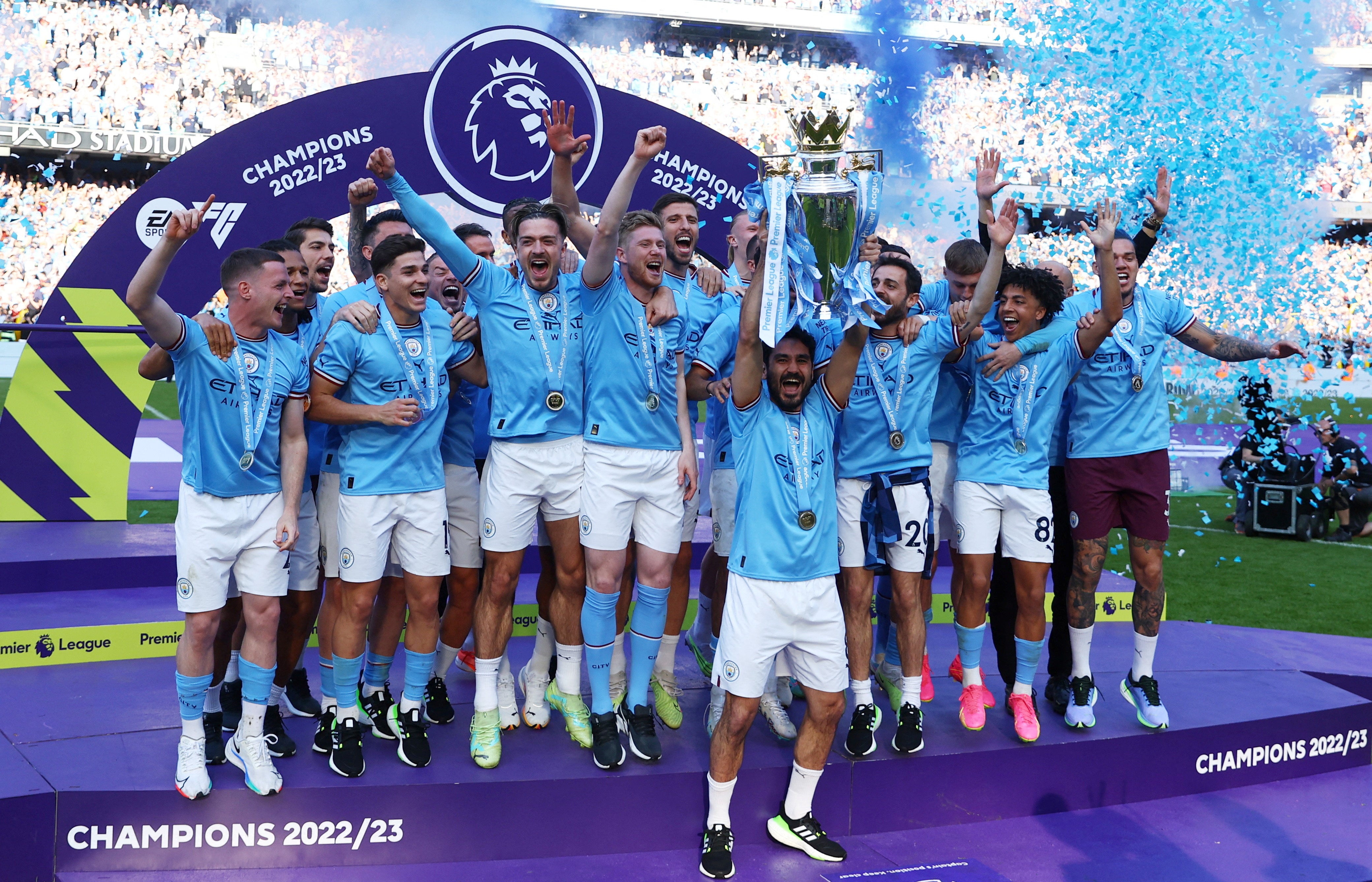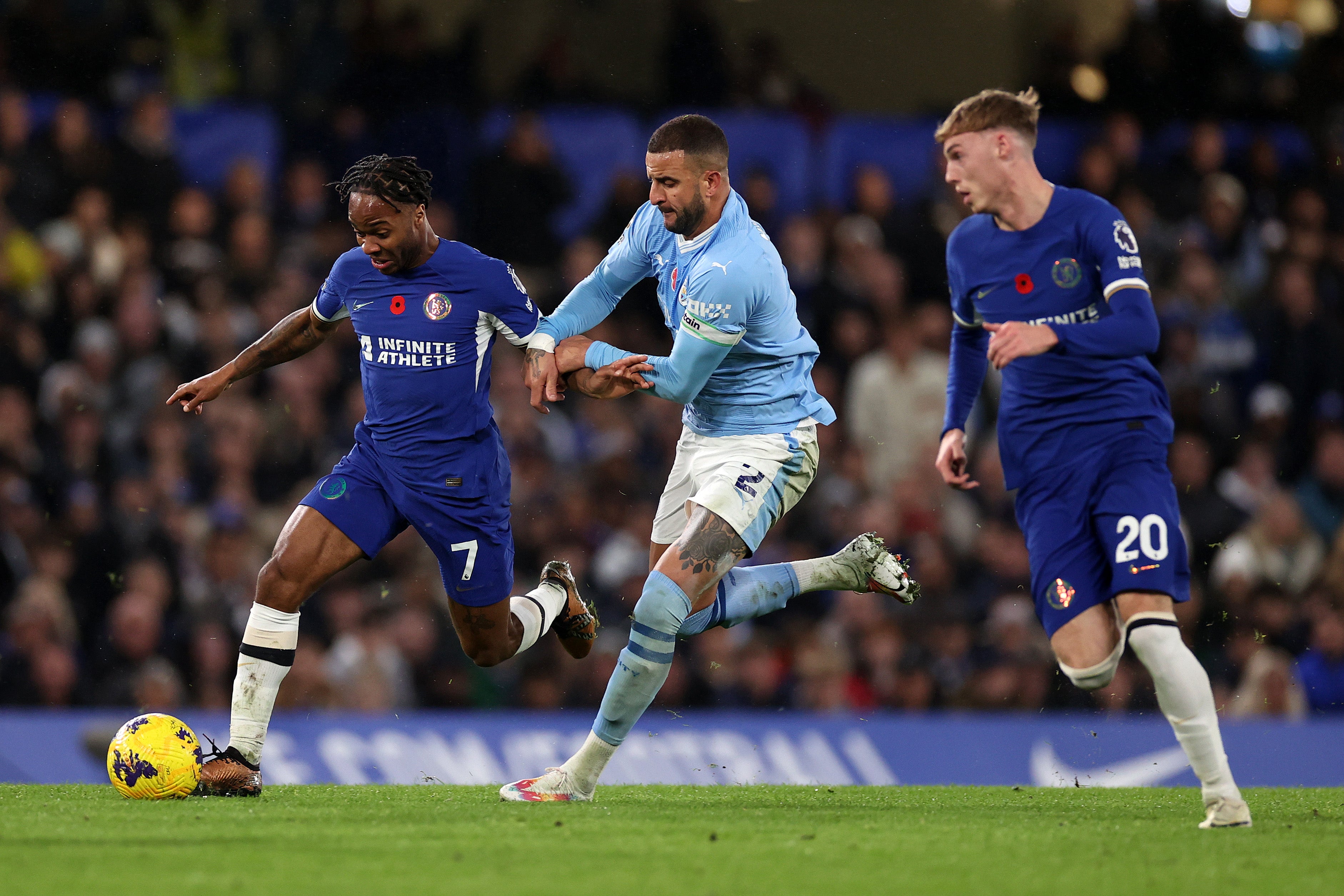Premier League holds TV power after bumper new deal but cracks are beginning to show
Sky has warded off the streaming services and signed up to another lucrative broadcast deal with the Premier League, but the landscape is changing

It’s hard to know which had the better timing: the headline or the header. On the day after the Premier League announced a new £6.7bn domestic TV deal, Declan Rice showed why it’s so valuable with yet another stoppage-time winner.
Arsenal’s late 4-3 victory away at Luton Town was just the latest chaotically entertaining game in an absurdly frenetic month for the Premier League. That is summed up by how it was the fourth game in that period in which both teams had scored at least three goals.
If the Premier League’s promotional lines about offering the most unpredictability can often sound self-congratulatory and even isolationist for something so international, they’re a lot easier to sell with sensational events like this. It all feels very much like it’s worth the fuss amid the emotion of a last-minute goal. This is why everyone wants to watch.

And yet, as with the matches themselves, the final numbers don’t always tell the full story. It has been another quirk of timing that this week’s games were shown on Amazon Prime, which did not even bid for a Premier League package for the 2025-29 broadcasting cycle. They didn’t feel there was value given the price – which is pointed. Neither, evidently, did DAZN, Apple or YouTube.
The streaming services haven’t influenced a further inflation, since the price that Sky Sports is paying per match has actually fallen. While the overall deal of £6.7bn represents a 4 per cent increase, that is for four seasons and more games. As such, the price per match has fallen from £9.3m to £5.95m.
Some of this is, of course, circumstantial rather than any cause for concern. Terms have been amended so broadcasters won’t have situations like on Sunday, where the drabbest game of the day is on TV and everyone is trying to seek out what is happening elsewhere. Future versions of Liverpool’s 4-3 win over Fulham will instead be shown at the same time as West Ham United’s 1-1 draw with Crystal Palace. Those needless blackouts of non-Saturday 3pm games will be less prevalent.
There is also the economic climate, which has naturally had a dampening effect. That is complemented by the moral point that it shouldn’t be this expensive for people to watch football. It is at least notable, there, that the Premier League has previously remained resistant to such forces. As the UK economy shrank by 6 per cent in the recession of 2008-09 following the global crash, its biggest sporting competition saw revenues grow by 20 per cent in 2008 and 8 per cent in 2009.

That was still at a point, however, where the broadcasting model was as sturdy as it’s ever been. Wifi was only beginning to spread. By contrast, we’re probably only now at the point where there is the beginning of a fragmentation. None of the streaming services are yet strong enough in this area. Amazon could be, but now want to pivot to what is seen as the only other major international club rights – the Champions League. They have first pick for Tuesday night games from next season.
As Amazon and other streaming companies continue to work out their approach to sport, Sky has never been clearer on its own. The Premier League is arguably more central to its approach than it’s ever been. It is the global brand you have to have, all that matters in sport. That is why the Premier League’s international broadcast rights – sold separately – are expected to again exceed the domestic deal. This could even be taken as a further example of how football is cannibalising the rest of sport, and the Premier League and elite-end football is cannibalising the rest of the beautiful game.
Sky’s huge land grab here, where it has claimed four of the five available packages, feels a pre-emptive move to protect its space before the market really changes. There’s a self-perpetuating element to the strategy, too.

Sky’s sheer willingness to have the Premier League has kept the figures at such high levels, which itself means Sky goes even further with marketing and ensuring the league remains the glossiest show. As one executive once put it to the competition’s hierarchy, “success for us is paying you more next time”.
The timing is relevant in other ways, though. The recent games and goals have created excitement about a potential three-way title race, at the very least, but it is arguably what the Premier League now needs more than anything.
The competition has so far withstood any concerns that Manchester City constantly winning the title could erode viewership, but that is something that becomes a greater problem the longer it goes on. Three titles in a row is something that has been seen with relative frequency, having happened three times in the Premier League era alone. Four-in-a-row has never happened in history.

That could be an issue for the future. The European landscape shows one-team leagues become less and less marketable. Ligue 1 broadcasting deals, in the words of many well-placed executives, are “a joke”.
All of this is further complicated by the fact that the champions themselves have been involved in a story that could lead the Premier League into a new era of off-field issues and litigation. The 115 charges for alleged breaches of Financial Fair Play rules are frequently brought up by other clubs in private, and will weigh over the competition until they are resolved. That now looks like it could go until 2025 with some involved figures believing the potential fallout will continue until 2028. City deny any wrongdoing. The situation undeniably informed discussion on the recent Everton case, though, even if the Premier League would point out they are completely separate.
The relevance is more how off-field issues can affect interest in what happens on the pitch. No competition wants to get into a situation where league tables later have asterisks, or sporting performance is mitigated by points deductions. That shouldn’t be seen as an argument for authorities not to rigorously pursue such issues. It is quite the opposite. It shows how regulation needs to be extremely strong at source, to prevent greater problems developing. The Richard Scudamore era has been increasingly criticised by figures within football for precisely this, especially when it comes to allowing questionable owners to buy clubs.

The timing was instructive there, too. On Wednesday afternoon, the United Arab Emirates greeted Vladimir Putin for a rare foreign trip since the invasion of Ukraine. In attendance, according to The National, were City owner Sheikh Mansour bin Zayed and club chairman Khaldoon Al Mubarak.
All of this as the Premier League has followed the rest of western football — and their governments — in seeking to ostracise Russia into ending the war.
The conflict has shown the danger of the game leaving itself open to geopolitics. It’s probably underappreciated just how close Chelsea came to going under after the sanctioning of Roman Abramovich.
This is how complicated the football world that the Premier League has led is becoming. The competition was one of many authorities that had to have government-level advice on how to navigate its position on the Israel-Hamas conflict.
None of it has yet affected the Premier League’s bottom line to any great degree. There is now just a bit more to consider under the headlines, and those headers. Amid all that, mind, the timing was quite important.
Join our commenting forum
Join thought-provoking conversations, follow other Independent readers and see their replies
Comments
Bookmark popover
Removed from bookmarks